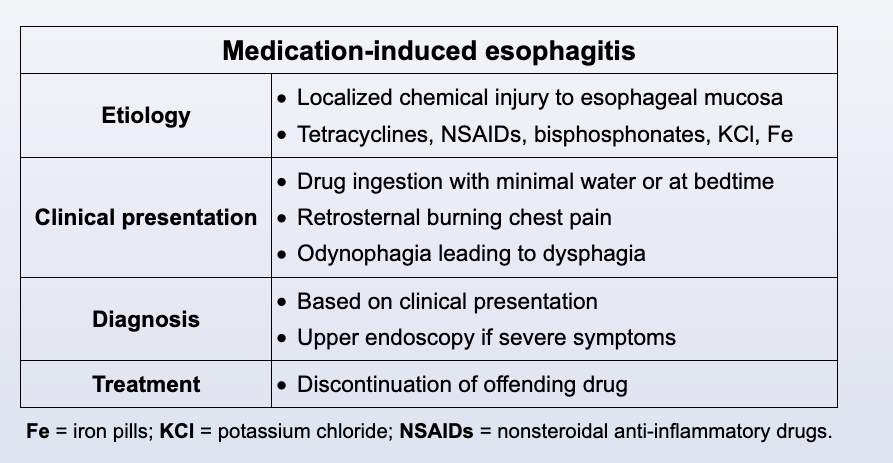Esophagitis
- related: GI, eosinophilic esophagitis

This patient's heartburn is most likely due to medication-induced esophagitis (MIE). Certain medications, including doxycycline, nonsteroidal anti-inflammatory drugs (NSAIDs), potassium chloride, and bisphosphonates (eg, alendronate), can become stuck in the esophagus and cause a localized chemical burn to the esophageal mucosa; due to external esophageal compression by the aorta, the level of the aortic arch is the most common site of injury. Doxycycline causes injury by becoming highly acidic (pH <3) in the presence of water, whereas other medications can cause injury due to hyperosmolarity (potassium chloride) or disruption of the prostaglandin protective barrier (NSAIDs).
Patients with MIE typically have retrosternal burning chest pain that may be accompanied by odynophagia leading to dysphagia. A history of ingesting a potentially offending medication with minimal water or at bedtime is usually present. The preferred treatment is discontinuation of the culprit drug, which typically results in resolution of symptoms within a week. Upper endoscopy is indicated for patients with severe or persistent symptoms. For patients who need to take a potentially offending medication, ingesting the pill with a full glass of water and remaining in an upright position for at least 30 minutes following ingestion can help reduce the risk of esophagitis.